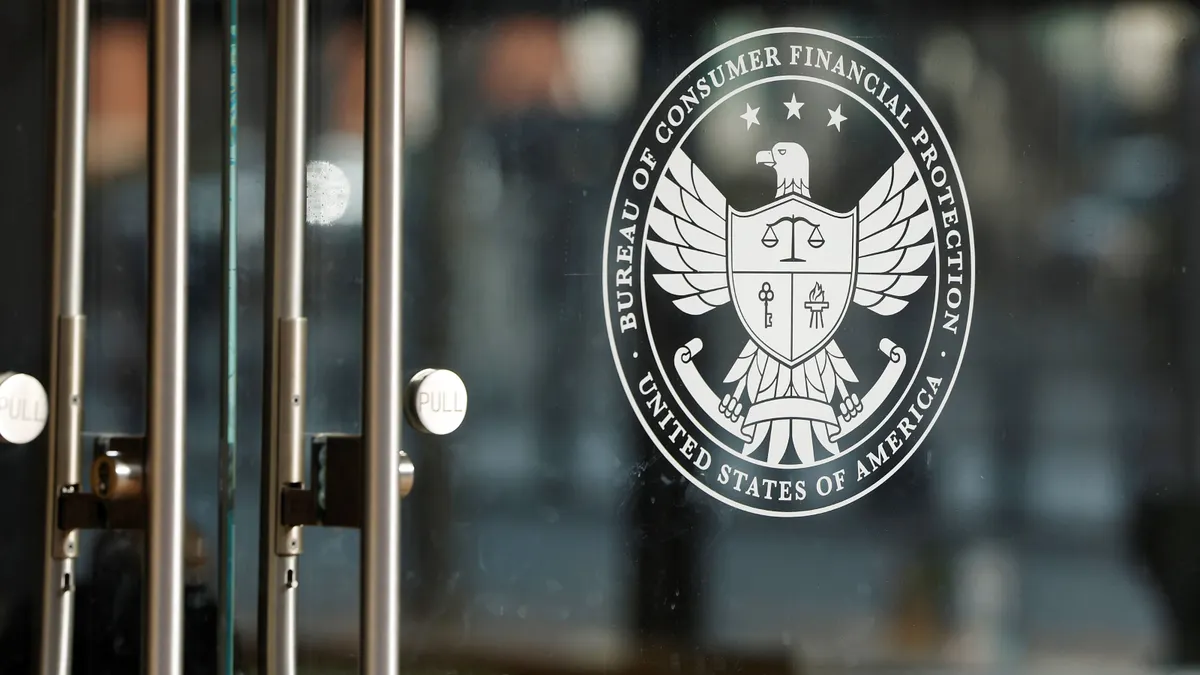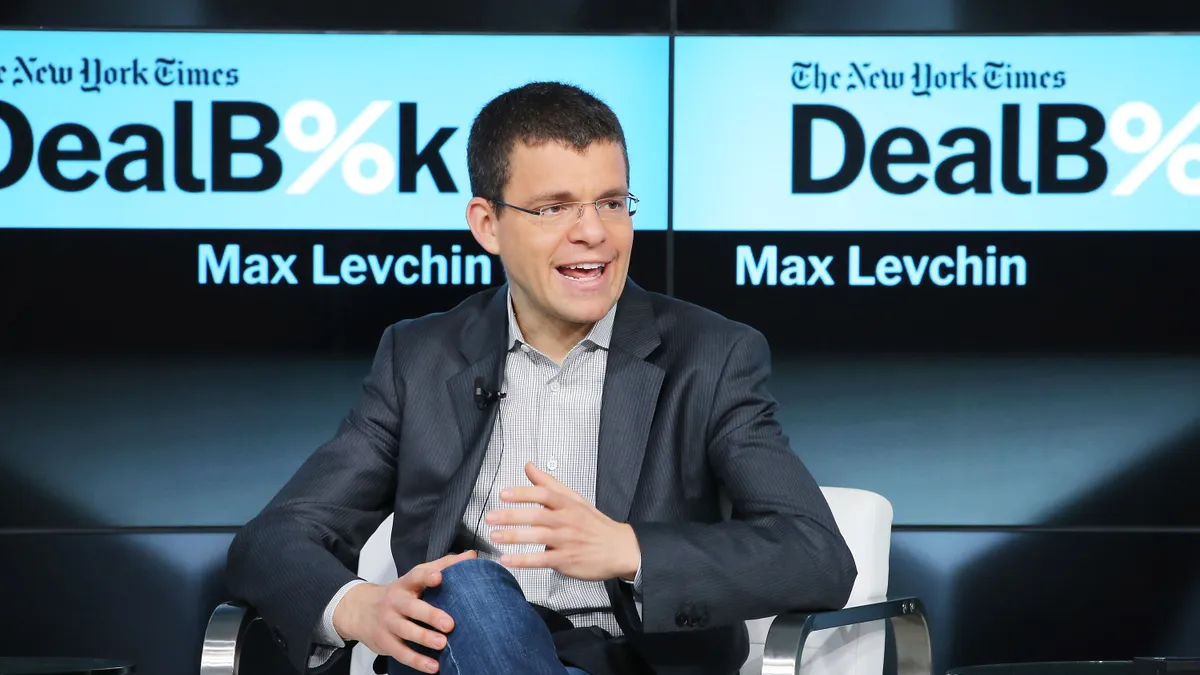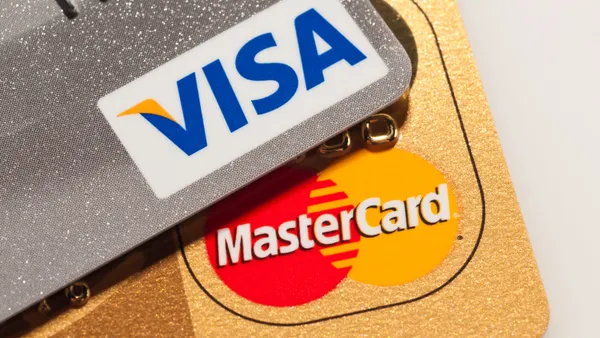An “unlawful” open banking bill from the Biden administration might not be so terrible after all.
The Consumer Financial Protection Bureau is reformulating its views on how a U.S. open finance regime should work, an about-face after asking a federal judge in May to vacate the “unlawful” rule bureau leaders had found lacking in several regards.
The CFPB is collecting public comment through Oct. 21 on three dozen questions it posed last month as it sorts through the intentions of Section 1033 of the Dodd-Frank Wall Street Reform and Consumer Protection Act.
How did the CFPB’s “unlawful” financial data rule of May, left to die by judicial decree, become one requiring only moderate revision by July?
Look no further than cryptocurrency, the nascent digital asset that the U.S. government is trying mightily to validate as the next big thing in money. For the open banking fight, Washington lobbyists mixed new JPMorgan Chase fees aimed at fintechs with the Trump administration’s crypto ardor and alchemized these into a policy redirection by the CFPB.
Over the summer, JPMorgan Chase, the biggest U.S. bank, moved to implement hefty new fees in its agreements with third-party aggregation companies like Plaid and MX Technologies. About 120 data aggregators connect financial data across different companies, according to the Bank Policy Institute.
JPMorgan’s fee schedule turned a theoretical cost into a financial emergency for some fintechs and crypto firms, with the bank’s first assessments expected this month – and the potential that other banks may follow.
Fintechs mobilized quickly to portray the fees as a direct threat to digital assets at a time when the Trump administration is championing crypto as a measure of U.S. innovation and global financial leadership.
The administration recognized that open banking “sort of impacts its other agenda items, particularly around digital assets and innovation,” said Ian P. Moloney, a senior vice president at the American Fintech Council.
The tech companies also wanted to make it a bit personal for Trump, who has tangled with banks as both president and previously as a real estate executive.
“By challenging open banking, the largest banks stand in direct opposition to your vision of making America the financial innovation capital of the world,” 10 trade associations, including crypto, retail and fintech groups, said in a July 23 letter to the president asking him to protect open banking.
Online, crypto interests blasted JPMorgan and the fees, and Donald Trump Jr. weighed in on his X account to support a post by Tyler Winklevoss, the prominent cryptocurrency investor, harshly criticizing “banksters” for stifling fintechs and consumer choice.
The reaction to the new fees from corporate groups beyond fintechs, including small businesses and convenience stores, likely came as “a bit of a surprise” to the administration, said Steve Boms, executive director of the Financial Data and Technology Association.
“I think it made them think more critically about whether a full-scale reversal of the existing 1033 rule was the appropriate policy path,” said Boms, who is also the founder and president of Allon Advocacy, a lobbying and consulting firm.
The campaign appears to have caused a rapid recalibration by CFPB leaders regarding open banking, a policy regime under which Americans control their personal financial data more overtly, allowing them to shift between financial institutions more easily and spurring more market competition.
Fintechs say banks are clearly trying to stifle competition with lawsuits and access fees, and exploit the uncertainty around open banking’s fate to muscle out would-be rivals. Banks contend that fintechs are seeking to profit from technology platforms the banks have built and improved at huge expense, and to operate without the same security standards required of banks.
Before JPMorgan Chase announced its access fees in July, aggregators paid no fees to banks for data they then sold to fintechs and others – a source of aggravation for banks that CEO Jamie Dimon called out in his annual shareholder letter in April.
“Third parties should pay for accessing the banking system and payment rails,” Dimon wrote.
In a letter last week, the payments giant Stripe urged the CFPB to take “immediate action to prevent irreparable harm to the marketplace and consumers” from JPMorgan Chase’s “excessive” fees.
“Allowing the largest banks to upend the existing framework through extortionate pricing will have serious and lasting impacts on the marketplace before the CFPB can complete its rulemaking process,” Shawn Chen, Stripe’s global head of litigation, told the bureau in an Aug. 29 letter.
Spokespeople for Stripe and JPMorgan Chase declined to comment last week, as did San Francisco-based Plaid.
The agency’s decision to revamp the open banking rule led a federal judge to stay a lawsuit filed last October in Lexington, Kentucky by banking groups that sought to block the rule. The Bank Policy Institute and two co-plaintiffs have asked the court to freeze compliance deadlines and enjoin enforcement of the rule. The compliance deadlines are staggered from 2026 through 2030, with the first arriving June 30.
The Financial Technology Association, which has intervened in the lawsuit to defend the CFPB rule, filed a motion Wednesday opposing the banks’ request.
Banks argue that spending time and money to comply with a rule the bureau plans to change makes no sense.
“Forcing banks to build systems to comply with a rule that the CFPB is significantly changing is like building a bridge to nowhere and will only result in confusion and compliance burdens for both banks and fintechs,” Paige Pidano Paridon, co-head of regulatory affairs for the Bank Policy Institute, said last week in an emailed statement.
The bureau has said it plans to extend the compliance dates as part of its rule revamp. Still, it’s unlikely that a revamped rule would be ready until late next year or 2027, based on the requirements of a formal rulemaking process.
Depending on how the revised rule turns out, the bureau could again find itself the defendant in a fresh lawsuit brought by an unhappy bank, fintech or crypto group.





















